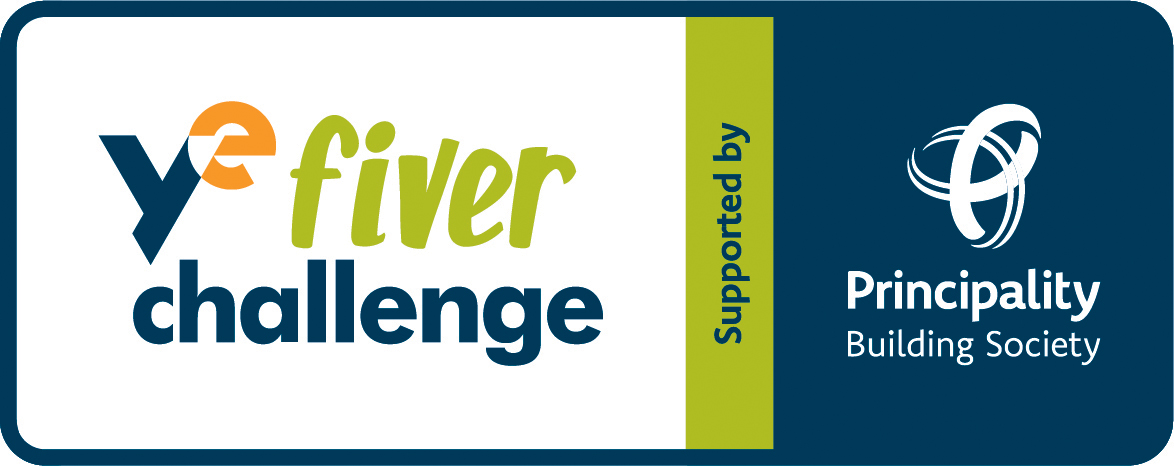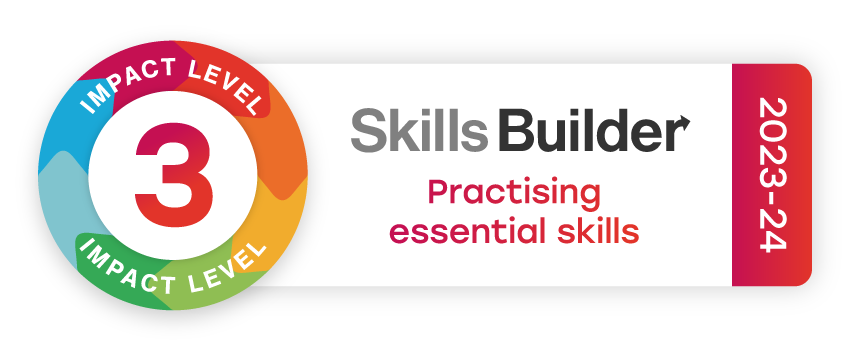How the Fiver Challenge supports the Curriculum for Wales
Engaging with the Fiver Challenge
The Fiver Challenge is a free national enterprise programme providing young people aged 5-11 with a highly interactive and fun way of developing core enterprise and financial education skills, including problem solving, confidence, creativity and teamwork.
Fiver activities are run by primary schools and led by the teacher using the resources available on the Fiver platform.
Fiver is a great opportunity to support your pupils to develop, use and apply a range of skills and knowledge in a real-life context including:
- Learning about enterprise and money management
- Key mathematical skills including problem solving
- Financial capability skills they can apply to their personal and working lives
- Communication skills that will improve their confidence and self esteem
- Creative and practical skills, including digital skills
- The ability to build relationships with a wide range of peers and other adults
The new Curriculum for Wales1 aims to prepare children to thrive in a future where digital skills, adaptability and creativity are crucial, and that is rooted in Welsh values and culture
The four purposes at the heart of the new Curriculum for Wales are intended to form the basis of every curriculum for all learners. Enabling educators to focus on developing a learner-centred approach, they can be used to provide engaging and contextualised learning opportunities and are based on the idea of young people being part of that planning journey.
This is what Fiver aims to do; enabling young people to develop a wide range of skills using real life contexts of their own making.
Through Fiver pupils will be able to develop the mandatory cross curricular skills of literacy, numeracy and digital competence as well as careers and work-related experience (CWRE). All this will contribute towards pupils’ realisation of the four purposes of the Curriculum for Wales.
1. Ambitious, capable learners, who are ready to learn throughout their lives
Responding to Fiver will draw on all their skills and encourage them to be ambitious and to think outside the box.
2. Enterprising, creative contributors, who are ready to play a full part in life and work
Fiver will give them scope to be creative and to play their part in a team to get the job done.
3. Ethical, informed citizens, who are ready to be citizens of Wales and the world
Fiver will enable them to link with their local community and understand its needs as well as thinking about how their business ideas can be sustainable and contribute to social good.
4. Healthy, confident individuals, who are ready to lead fulfilling lives as valued members of society
Fiver will enable them to develop their communication skills by dealing with a range of people in and outside school.
More broadly we believe that Fiver’s contributions to pupil’s development are:
-
Providing a foundation for pupils to develop key skills for learning, life and work e.g., ability to listen to peers and compromise, work in a team and understand team members skills and roles, adaptability, creativity, and how to manage money and develop solutions to problems.
-
Allowing for equality across all abilities for pupils to raise their aspirations and develop positive attitudes to work from an early age.
-
Understanding the importance of community through engagement and the concept of social entrepreneurship by developing a services or product that helps the local or wider community.
-
Providing inspiration to teachers in how to apply enterprise and finance education by providing a more sustainable learning approach to pupils.
-
Fiver may also act as a ‘springboard’ by providing a platform for subsequent learning after the challenge has ended.2
More ways in which Fiver helps deliver the new requirements in Wales.
The role of enterprise education in the development of pupils in Wales
Fiver seeks to develops enterprise and financial capability while developing economic and business understanding.
The aim of enterprise education is to support young people to develop a wide variety of skills such as leadership and entrepreneurship, teamwork, communication, and decision making; transferrable skills that provide the key to the development of confident, financially capable and enterprising young people. Financial education is equally as relevant when developing enterprising mindsets.
Young people need a financial education that helps them develop the knowledge, skills and attitudes required to manage their money, make informed financial decisions and achieve their goals. By learning about money from an early age, they have the potential to transform their lives by opening opportunities that may not have been considered. 3
Research has shown that teaching children about enterprise and financial education from a young age allows pupils to build a strong foundation for further learning.4 5
Young Enterprise knows that it is critically important to engage with primary-age children during those formative years when they are developing their mindsets around money, enterprise, and potential career pathways. We feel that giving them the opportunity to ignite their enterprising spark through programmes such as Fiver will increase awareness of potential career paths and give them the confidence and knowledge to make better-informed decisions about their future. 3
Community Engagement
Pupils are encouraged to engage with their school and local community throughout Fiver by developing a product/service that could help their school and/or local communities. This supports them to evolve new employability and financial skills through a practical learning opportunity.
Through community engagement, Fiver provides an additional opportunity to learn about social entrepreneurship and the positive impact they can have on others in their community as well as the wider environment.
Fiver provides real-world learning contexts and possibilities that enable numerous aspects of the taught curriculum to be included for relevant curriculum learning.
Relevance of Fiver to the Curriculum for Wales
Careers and work-related experiences (CWRE) 1
CWRE enables learners to develop their knowledge, skills and understanding in the ever-evolving world of work and contributes towards learners’ realisation of the four purposes of the Curriculum for Wales.
| From the age of 3, CWRE should inspire learners to: |
| develop an understanding of the purpose of work in life, both for themselves and for society as a whole |
| become increasingly aware of the range of opportunities available to them, broadening their horizons |
| develop the attitudes and behaviours required to overcome barriers to employability, career management and lifelong learning |
| appreciate the increasing range of opportunities in the workplace where an ability to communicate in Welsh is important |
| explore opportunities through a variety of meaningful experiences in learning, work and entrepreneurship |
| develop resilience and the ability to be adaptable in response to the challenges, choices and responsibilities of work and life |
The identified areas below show the importance of key contributors and influences on the career decisions of young people and how schools and settings should consider these in designing CWRE to support the four purposes in the curriculum.
Integral skills to the four purposes
The four purposes are also underpinned by integral skills which should be developed within a wide range of learning and teaching.
At the heart of these skills is the importance of learners recognising, using and creating different types of value; in a range of contexts, including financial, cultural, social and learning value
| Creativity and innovation Learners should be given space to be curious and inquisitive, and to generate many ideas. They should be able to identify opportunities and communicate their strategies. |
| Critical thinking and problem solving Learners should be supported to ask meaningful questions, to evaluate information, evidence and situations. They should be able to propose solutions which generate different types of value. |
| Personal effectiveness Learners should develop emotional intelligence and awareness, becoming confident and independent. They should be able to evaluate their learning and mistakes, identifying areas for development. They should become responsible and reliable. |
| Planning and organising Where developmentally appropriate, learners should be able to set goals, make decisions and monitor interim results. They should be able to reflect and adapt, as well as manage time, people and resources. |
At the heart of developing these skills there are key things teachers are asked to keep in mind, all of which chime with the enterprising skills that Fiver will start to develop in young people.
| For example, your pupils through this challenge can be encouraged to: |
| Develop an appreciation of sustainable development and the challenges facing humanity |
| Develop awareness of emerging technological advances |
| Be supported and challenged so that they are prepared to confidently meet the demands of working in uncertain situations, as changing local, national and global contexts result in new challenges and opportunities for success |
| Be offered the space to generate creative ideas and to critically evaluate alternatives: in an ever-changing world, flexibility and the ability to develop more ideas will enable learners to consider a wider range of alternative solutions when things change |
| Build their resilience and develop strategies which will help them manage their well-being: they should be encountering experiences where they can respond positively in the face of challenge, uncertainty or failure |
| Learn to work effectively with others, valuing the different contributions they and others make: they should also begin to recognise the limitations of their own work and those of others as they build an understanding of how different people play different roles within a team. |
Cross curricular skills
The mandatory cross-curricular skills of literacy, numeracy and digital competence are essential for learners to be able to access knowledge across the breadth of a school’s curriculum and the wealth of opportunities it offers, equipping pupils with the lifelong skills to grasp the four purposes.
These are skills that can be transferred to the ever-changing world of work, enabling them to adapt and thrive in the fast-paced environments.
| Learners must be given the opportunities across the curriculum to: |
| Develop listening, reading, speaking and writing skills |
| Be able to use numbers and solve problems in real-life situations |
| Be confident users of a range of technologies to help them function and communicate effectively and make sense of the world |
References:
- 1. Curriculum for Wales 2021
- 2. Young Enterprise Fiver Challenge Evaluation report 2018
- 3. Enterprising Mindsets summary report: 'Make it real and make it mean something'
- 4. Lord Young (2014) Enterprise for All Report
- 5. APPG (2016) All Party Parliamentary Group on Financial Education for Young People report: Financial Education in Schools: Two Years On – Job Done?

